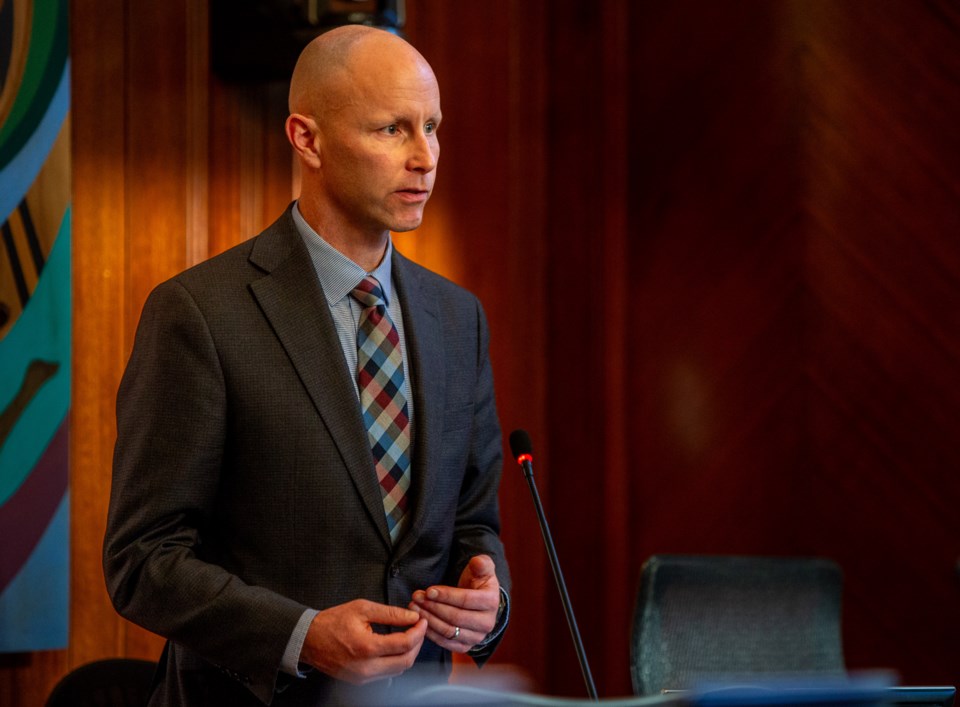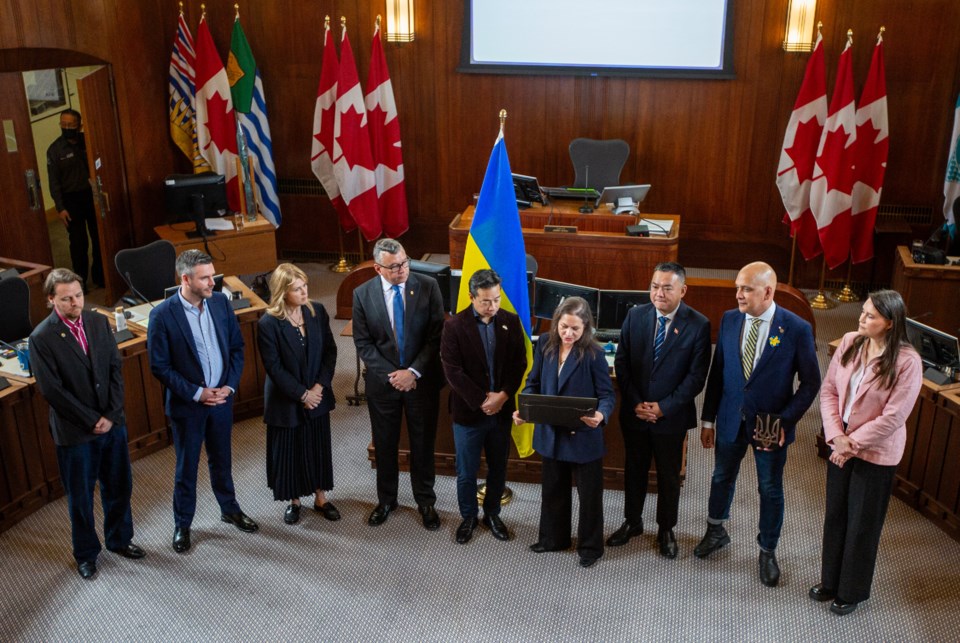Vancouver Mayor Ken Sim has received support from the majority of council to direct staff to consider three alternative scenarios for property tax hikes in 2026, including one that keeps an increase at one per cent.
Sim made his pitch for the scenarios after hearing a presentation from Colin Knight, the City’s chief financial officer, who suggested a property tax hike in the six to seven per cent range for 2026 was necessary to cover existing service levels and salaries.
“That's because the City's costs aren't the same as the general [Consumer Price Index] costs,” Knight told council June 18. “Specifically, a large portion of our cost base is driven by salaries that are under collective agreements.”
Historically, those costs have increased at a level that is higher than general CPI, particularly for police officers and firefighters. Also, a big portion of the City's budget is related to construction and materials, which have recently experienced inflation rates much higher than the general CPI.
Sim recognized the costs highlighted by Knight, but said “we've also heard very loud and clear” from Vancouver renters, homeowners and business operators that they can't “bear any more weight” from increased fees and taxes in a $2.2 billion budget.
“We should be able to find savings and efficiencies,” the mayor told council.
Infrastructure deficit
Staff will now spend the next six months developing scenarios that consider tax hikes of 2.5 per cent, 1.5 per cent and zero per cent. Each one of those scenarios includes an additional one per cent to cover the cost of tackling the city’s infrastructure deficit.
No matter how an increase is broken down, the reality for taxpayers is that another tax hike is coming in 2026, and it will be one per cent or more, along with increases in utility fees.
The move by Sim is more aggressive than his request last year to keep a property tax hike in 2025 at no more than 5.5 per cent; the increase ended up being 3.9 per cent, which came after 7.28 and 10.7 per cent hikes in previous years.
The mayor pointed to the hiring of more police officers and firefighters in the first two years of his ABC Vancouver-led administration’s term as reasons for the significant tax hikes.
“We've taken a hit in previous budgets to bring underfunded frontline staff levels up to where they need to be,” he said, noting the VPD is “fully funded” for the first time in 15 years, and the fire department in eight years.
Green Party Coun. Pete Fry pushed back against the mayor’s request for three scenarios over concerns the motion did not direct staff to itemize what programs or services would need to be cut or reduced to reach a low property tax hike.
Fry was supported by councillors Sean Orr, Lucy Maloney and Rebecca Bligh.
“I know this is going into a very intense year,” Bligh said. “It is an election year. It's not surprising we're getting this kind of property tax increase proposals, politically speaking. So I think we have some due diligence and responsibility to the public to be very transparent about what those trade-offs are.”
Fry’s amendment failed.

'Raise questions for our staff'
The day after the council meeting, city manager Paul Mochrie issued a memo to staff that explained some “immediate measures” were being implemented in the interest of “building capacity to avoid extensive and across-the-board impacts” in 2026.
The City’s communications team shared the memo with BIV.
“These measures are intended to manage expenditures and create options within the approved 2025 budget to absorb anticipated cost increases,” Mochrie wrote.
“Measures include deferral of non-essential hiring and additional controls on certain categories of expenditure, including travel, training, equipment purchases and external service contracts.”
In a subsequent email to BIV Tuesday, Mochrie provided some clarity about whether new staff would be hired. Council heard from Knight at last week’s council meeting that the number of full-time staff had increased from 9,490 in 2024 to 9,665 this year.
“While we are deferring non-essential hiring as part of these interim steps, this does not amount to a full hiring freeze,” he said. “Through the remainder of 2025, we will continue to fill vacant positions as necessary to avoid significant reductions in services to the public.”
Added Mochrie: “We recognize that these changes raise questions for our staff. We are committed to keeping our staff informed as we are able and supported through this period of time.”
Historically, councils have participated in budget deliberations in December, where the property tax hike for the following year is decided after receiving a lengthy budget report from the City’s finance staff.
In their first few months in office, Sim and ABC council deferred setting a tax hike in December 2022 until early in the new year. The purpose was to give the new mayor and rookie councillors time to digest the budget.
This year’s budget round will be the last before Sim seeks re-election in October 2026.
X/@Howellings




